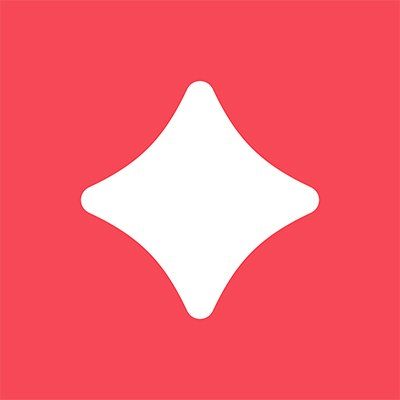Table of Contents
With the rise of AI tools like ChatGPT, generative AI has evolved from a futuristic concept to a practical toolset that HR teams use daily. While some feared that artificial intelligence could lead companies to favor tech over talent, the reality is that AI solutions amplify human skills without replacing them.
While AI tools excel at processing complex employee data, spotting patterns, and driving data-driven insights, they cannot replicate the human expertise, emotional intelligence, or critical thinking that HR leaders bring to decision-making and strategic planning.
For HR departments, AI tools are proving invaluable, helping streamline human resources practices and time-consuming tasks and offering insights extending far beyond what was previously achievable. Recent research from Paychex shows that over 75% of HR leaders at organizations with more than 20 employees plan to expand AI use within the year. By adopting AI solutions strategically, HR teams can simplify administrative tasks, elevate employee engagement, support employee experience initiatives, and see significant cost savings, making AI an invaluable tool in modern HR operations.
In this blog, we explore five essential ways AI empowers HR teams to work smarter, focusing on AI capabilities that boost productivity, enhance engagement, and improve operational efficiency across the employee life cycle.
Need a cheat sheet? Don’t worry, we have the perfect checklist for you. No email required.
1. Automating time-consuming tasks to boost HR productivity

HR teams often manage a wide range of time-consuming tasks that, while essential, detract from the time available for strategic initiatives. By automating these tasks, HR professionals gain the bandwidth to focus on high-impact goals like enhancing the employee experience, supporting employee retention, and advancing talent management.
Streamlining payroll and benefits administration
Payroll processing and benefits administration are necessary yet labor-intensive HR functions. With AI-driven tools to automate calculations, manage deductions, and ensure compliance with tax regulations, human resources professionals can significantly reduce manual tasks. Self-service AI chatbots allow employees to access and navigate benefits enrollment independently, alleviating the administrative load on HR operations teams and reducing the volume of routine queries.
Automating employee onboarding and offboarding
Automated onboarding and offboarding workflows enhance the employee lifecycle by providing a seamless experience for employees and reducing manual work for HR teams. AI automates tasks like account setup, training assignments, and equipment requests, ensuring compliance and minimizing friction throughout the employee journey.
For remote or hybrid workforces, AI-based automation is particularly valuable, as it ensures fast, efficient, and standardized processes.
Enhancing time and attendance management
AI-powered systems streamline time tracking and attendance, automatically identifying anomalies or deviations from policy. Automating these processes reduces administrative work and improves accuracy, helping HR teams manage compliance requirements more effectively and enhance employee management overall.
Efficiently managing employee records
AI enables real-time, automated management of employee records, cutting down on the time HR professionals spend on data entry and updates. With AI, an HR team can proactively receive alerts about incomplete records or necessary compliance updates, ensuring data management remains accurate and up to date.
Automated employee feedback collection and analysis
AI platforms empower HR leaders to gather and analyze employee feedback from pulse surveys to performance evaluations more efficiently. With AI algorithms identifying patterns and trends in engagement, HR teams can address concerns proactively. Automated feedback processes enable continuous employee engagement monitoring, allowing HR to make data-driven adjustments to their engagement strategies as needed.
2. Personalizing employee communication with AI-driven tools

Effective communication is essential for HR teams responsible for connecting a diverse workforce with varying roles, locations, and engagement preferences. AI-driven tools empower HR professionals to customize messages to each employee’s unique needs, making communications more relevant and impactful across the organization.
Crafting messages that resonate
One of the key strengths of AI in HR is its ability to adjust communications based on specific employee preferences and roles. By analyzing engagement patterns, AI technology can recommend communication styles for different groups—such as concise updates for frontline workers or regular check-ins for remote employees. With AI-powered insights, HR leaders can ensure that messages resonate with every employee, fostering higher engagement and retention.
Segmenting audiences for targeted communication
AI enables HR departments to segment employees based on attributes like department, location, and seniority, ensuring each message is directed to the appropriate audience. For example, safety updates can be tailored to frontline workers, while high-level strategic updates reach managers. This targeted approach minimizes information overload, increasing message relevance and ensuring HR functions are effective and impactful.
Boosted engagement
“People are interacting with the content more on the mobile app—up to 15 times more, in some instances, compared to email. We definitely see that Firstup users are more engaged.”
Dynamic content personalization
AI tools can modify content to align with individual employee needs or specific job roles. Platforms like Firstup’s CommunicationAI allow HR teams to create custom communication templates that cater to particular employee segments such as new hires, remote workers, or long-tenured staff. This level of personalization makes messages more relevant, ensuring support at each stage of the employee lifecycle.
Optimizing timing for maximum engagement
Timing can significantly influence engagement. AI-driven tools can identify optimal times to send messages based on employee behavior and engagement patterns. For instance, AI may suggest morning notifications for desk-based employees and an alternative schedule for shift workers, maximizing message visibility and effectiveness.
Multichannel delivery for broader reach
AI-powered communication platforms allow HR operations teams to reach employees through their preferred channels, such as email, mobile apps, or digital signage. This multichannel delivery approach ensures that employees can access messages in the format that best suits them, creating a more inclusive and accessible communication experience.
3. Using AI to elevate employee support and experience

HR departments function as customer service centers for the organization, with employees as their primary customers. Ensuring efficient and meaningful employee interactions is essential to effective HR operations, and AI technology provides the tools to optimize this experience. By automating routine tasks and enhancing real-time support, HR professionals gain the freedom to focus on initiatives that drive employee engagement and strengthen company culture. Below are key ways AI elevates employee support and enhances the overall employee experience.
Implementing AI-driven digital assistants
One impactful way to support employees is by using AI-driven digital assistants to provide quick, accurate responses to common HR questions. These virtual assistants are available 24/7, ensuring employees have access to important information about policies, benefits, and payroll whenever they need it.
Digital assistants are also crucial during onboarding, guiding new hires through essential resources and answering frequently asked questions. This streamlined onboarding saves HR teams time while ensuring new employees feel informed and supported from day one, fostering a positive start within the company.
In the Firstup platform, the digital assistant delivers real-time information on company news, policies, and personal work information, creating a smoother experience for both employees and HR staff.
Automating essential HR communications
AI-powered tools within communication platforms like Firstup’s CommunicationAI allow HR teams to automate key campaigns, including onboarding, open enrollment, and compliance training. By automating these communications, HR departments can save time on crafting and distributing messages as well as handling follow-ups and reminders. This automation enables HR leaders to reach employees effectively without overwhelming their inboxes.
CommunicationAI also allows HR teams to personalize communications based on attributes such as location, job title, or language preferences. Tailored messages increase relevance, improve retention, and boost employee satisfaction across various HR processes.
Proactively addressing employee needs with predictive insights
Artificial intelligence doesn’t just streamline responses to employee inquiries; it can also proactively identify areas where additional support might be needed. By analyzing engagement trends, HR teams can pinpoint areas of low interaction or identify teams that may benefit from further guidance. This predictive capability allows HR to deploy targeted campaigns or resources to prevent dissatisfaction, ultimately reducing turnover and boosting engagement.
Strengthening employee satisfaction through personalization
Employee satisfaction hinges on receiving relevant, timely information. AI-driven platforms can segment employees by various factors and personalize communications accordingly. For instance, updates about specific HR programs or safety protocols can be directed to relevant departments, while company-wide updates reach everyone. This targeted approach reduces information overload and ensures employees receive information that matters to them, enhancing their perception of HR as attentive and responsive.
Enhancing the onboarding journey
A smooth onboarding process is essential to a positive employee experience. AI-driven onboarding solutions can help new hires access critical resources, connect with relevant contacts, and complete onboarding tasks at their own pace. Personalized AI-supported onboarding journeys empower employees to feel confident and connected from day one, establishing a strong foundation for engagement and productivity.
4. Leveraging AI for employee engagement, retention, and strategic HR planning

Incorporating AI in HR is transforming how human resources teams handle workforce engagement, retention, and planning. As HR practices evolve, artificial intelligence offers powerful analytics and insights that streamline daily operations, support job satisfaction, and enhance employee experience. This data-driven approach empowers HR leaders to respond effectively to workforce needs and strategically plan for organizational success.
Analyzing employee engagement data to enhance retention
AI in HR empowers teams to sift through extensive engagement data, deriving actionable insights that traditional methods struggle to achieve. Through generative AI, HR can automate sentiment analysis on survey responses or feedback, quickly identifying emerging themes that may impact morale. By spotting trends and assessing employee sentiment promptly, HR teams can proactively address issues, ultimately strengthening employee retention.
Improving retention by identifying at-risk employees with AI
A key benefit of generative AI in HR is predictive analytics, which can identify disengaged employees before they leave. AI tools analyze job satisfaction data, engagement levels, and participation metrics to detect patterns that signal potential turnover. Equipped with these insights, HR can devise personalized outreach and re-engagement strategies, reducing turnover costs and preserving institutional knowledge.
Optimizing workforce planning through data-driven insights
AI technology enables HR leaders to plan for future workforce needs by analyzing trends and pinpointing skills gaps. These AI-driven insights allow HR to align workforce planning with long-term goals, optimizing job descriptions, training needs, and recruitment strategies to stay ahead of talent demands. By forecasting talent needs, HR can drive organizational agility and ensure the company remains competitive.
Enhancing strategic decision-making with AI-powered insights
Generative AI and data analytics give HR leaders access to real-time dashboards that reveal workforce trends and performance metrics. By leveraging these insights, HR can make strategic, informed decisions that align HR functions with business objectives, and support overall organizational growth.
5. Streamlining recruitment with AI for more effective talent acquisition

In today’s competitive job market, AI in HR is transforming the hiring process, making it faster, more precise, and less biased. Artificial intelligence enhances efficiency and precision in recruitment, enabling HR functions to adopt AI technology that refines talent management strategies. AI-driven recruitment tools support HR professionals and hiring managers, helping them make data-informed hiring decisions while improving candidate experience and reducing time on repetitive tasks.
Accelerating candidate sourcing and screening
AI helps HR teams with talent acquisition by sourcing and screening candidates more quickly and analyzing resumes and applications to match job requirements with relevant skills and experience. Through generative AI, HR teams can automate descriptions and match candidates with the skills required, reducing manual work and improving the employee management experience from recruitment to onboarding. Using natural language processing (NLP), AI can scan large candidate pools, identify ideal profiles, and rank applicants based on how closely they align with job qualifications.
Enhancing diversity and minimizing bias
AI in HR functions can reduce unconscious bias in hiring by focusing on objective candidate qualifications rather than demographic factors. AI-driven recruitment algorithms trained to prioritize qualifications ignore details that may introduce bias, such as gender or ethnicity. This inclusive approach supports talent management by helping HR build a balanced, representative workforce.
Predictive analytics for better hiring outcomes
Predictive analytics allow HR teams to evaluate not only candidates’ qualifications but also their potential to thrive within the organization. AI tools leverage past performance data and behavioral assessments to identify candidates who are likely to succeed in specific roles, contributing to reduced turnover and optimized team dynamics. These insights ensure HR makes choices that align with both short- and long-term talent management goals.
Improving the candidate experience with virtual assistants
AI-powered virtual assistants streamline candidate communication, offering real-time responses to inquiries about the application process, job descriptions, and company culture. These virtual assistants keep candidates engaged and informed, improving their experience and supporting a positive employer brand perception.
Supporting recruitment communication with CommunicationAI
Firstup’s CommunicationAI integrates seamlessly into the recruitment process, helping HR teams maintain clear, consistent communication with candidates. By delivering real-time updates and personalized messages, CommunicationAI ensures candidates are informed at each stage, from application to offer.
With omnichannel capabilities, the platform allows HR teams to connect with candidates during the hiring process through preferred channels—email, SMS, or mobile app—boosting engagement and responsiveness. This personalized approach not only enhances the candidate experience but also allows HR to project a cohesive and welcoming brand image throughout the hiring journey.
Learn more about CommunicationAI
6. Ensuring data privacy and compliance with AI-powered security

As AI solutions continue to transform HR processes, safeguarding sensitive employee data is more essential than ever. According to a recent Deloitte survey, 62% of organizations cite data privacy as a primary concern in adopting AI in HR. AI-driven security tools help mitigate these concerns by continuously monitoring data access and usage to detect any irregularities that could suggest unauthorized access.
AI-generated audit trails create a detailed, accessible record of data interactions, empowering HR teams to uphold privacy protocols while identifying opportunities for continuous improvement.
Transform your HR strategy with Firstup’s AI-infused communication platform
As an intelligent communication platform infused with advanced AI, Firstup empowers human resources teams to create meaningful, data-driven connections across the workforce. At the heart of this platform is CommunicationAI, which uses rich employee engagement data to deliver personalized, relevant messages that align with each employee’s role and preferences. By leveraging predictive modeling, real-time data analytics, and omnichannel delivery, Firstup provides HR leaders with insights to boost engagement, support retention, and refine workforce strategies.
With CommunicationAI, organizations can anticipate and address employee needs proactively, ensuring that HR communications aren’t just heard but resonate. Find out how Firstup can revolutionize HR communication strategies to amplify the employee experience.
Discover Firstup
Table of Contents
Related posts
Subscribe via Email
Subscribe to our blog to get insights sent directly to your inbox.
Related posts

Sign up to receive the latest news and resources from Firstup
Firstup delivers personalized communication and data insights to improve the employee experience at every moment that matters





